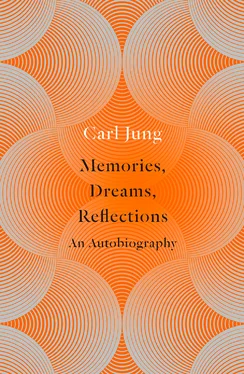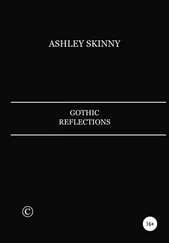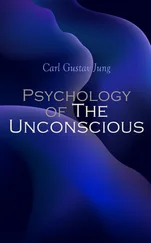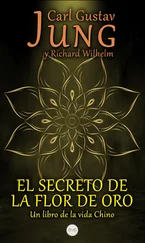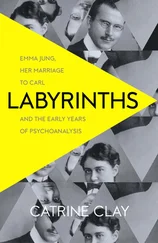I either did not see or gravely doubted that God filled the natural world with His goodness. This, apparently, was another of those points which must not be reasoned about but must be believed. In fact, if God is the highest good, why is the world, His creation, so imperfect, so corrupt, so pitiable? “Obviously it has been infected and thrown into confusion by the devil,” I thought. But the devil, too, was a creature of God. I had to read up on the devil. He seemed to be highly important after all. I again opened Biedermann’s book on Christian dogmatics and looked for the answer to this burning question. What were the reasons for suffering, imperfection, and evil? I could find nothing.
That finished it for me. This weighty tome on dogmatics was nothing but fancy drivel; worse still, it was a fraud or a specimen of uncommon stupidity whose sole aim was to obscure the truth. I was disillusioned and even indignant, and once more seized with pity for my father, who had fallen victim to this mumbo-jumbo.
But somewhere and at some time there must have been people who sought the truth as I was doing, who thought rationally and did not wish to deceive themselves and others and deny the sorrowful reality of the world. It was about this time that my mother, or rather, her No. 2 personality, suddenly and without preamble said, “You must read Goethe’s Faust one of these days.” We had a handsome edition of Goethe, and I picked out Faust. It poured into my soul like a miraculous balm. “Here at last,” I thought, “is someone who takes the devil seriously and even concludes a blood pact with him — with the adversary who has the power to frustrate God’s plan to make a perfect world.” I regretted Faust’s behaviour, for to my mind he should not have been so one-sided and so easily tricked. He should have been cleverer and also more moral. How childish he was to gamble away his soul so frivolously! Faust was plainly a bit of a windbag. I had the impression that the weight of the drama and its significance lay chiefly on the side of Mephistopheles. It would not have grieved me if Faust’s soul had gone to hell. He deserved it. I did not like the idea of the “cheated devil” at the end, for after all Mephistopheles had been anything but a stupid devil, and it was contrary to logic for him to be tricked by silly little angels. Mephistopheles seemed to me cheated in quite a different sense: he had not received his promised rights because Faust, that somewhat characterless fellow, had carried his swindle through right into the Hereafter. There, admittedly, his puerility came to light, but, as I saw it, he did not deserve the initiation into the great mysteries. I would have given him a taste of purgatorial fires. The real problem, it seemed to me, lay with Mephistopheles, whose whole figure made the deepest impression on me, and who, I vaguely sensed, had a relationship to the mystery of the Mothers. 5At any rate Mephistopheles and the great initiation at the end remained for me a wonderful and mysterious experience on the fringes of my conscious world.
At last I had found confirmation that there were or had been people who saw evil and its universal power, and — more important — the mysterious role it played in delivering man from darkness and suffering. To that extent Goethe became, in my eyes, a prophet. But I could not forgive him for having dismissed Mephistopheles by a mere trick, by a bit of jiggery-pokery. For me that was too theological, too frivolous and irresponsible, and I was deeply sorry that Geothe too had fallen for those cunning devices by which evil is rendered innocuous.
In reading the drama I had discovered that Faust had been a philosopher of sorts, and although he turned away from philosophy, he had obviously learned from it a certain receptivity to the truth. Hitherto I had heard virtually nothing of philosophy, and now a new hope dawned. Perhaps, I thought, there were philosophers who had grappled with these questions and could shed light on them for me.
Since there were no philosophers in my father’s library — they were suspect because they thought — I had to content myself with Krug’s General Dictionary of the Philosophical Sciences , second edition, 1832. I plunged forthwith into the article on God. To my discontent it began with the etymology of the word “God,” which, it said, “incontestably” derived from “good” and signified the ens summum or perfectissimum. The existence of God could not be proved, it continued, nor the innateness of the idea of God. The latter, however, could exist a priori in man, if not in actuality at any rate potentially. In any case our “intellectual powers” must “already be developed to a certain degree before they are capable of engendering so sublime an idea.”
This explanation astounded me beyond measure. What is wrong with these “philosophers”? I wondered. Evidently they know of God only by hearsay. The theologians are different in this respect, at any rate; at least they are sure that God exists, even though they make contradictory statements about Him. This lexicographer Krug expresses himself in so involved a manner that it is easy to see he would like to assert that he is already sufficiently convinced of God’s existence. Then why doesn’t he say so outright? Why does he pretend — as if he really thought that we “engender” the idea of God, and to do so must first have reached a certain level of development? So far as I knew, even the savages wandering naked in their jungles had such ideas. And they were certainly not “philosophers” who sat down to “engender an idea of God.” I never engendered any idea of God, either. Of course God cannot be proved, for how could, say, a clothes moth that eats Australian wool prove to other moths that Australia exists? God’s existence does not depend on our proofs. How had I arrived at my certainty about God? I was told all sorts of things about Him, yet I could believe nothing. None of it convinced me. That was not where my idea came from. In fact, it was not an idea at all — that is, not something thought out. It was not like imagining something and thinking it out and afterwards believing it. For example, all that about Lord Jesus was always suspect to me and I never really believed it, although it was impressed upon me far more than God, who was usually only hinted at in the background. Why have I come to take God for granted? Why do these philosophers pretend that God is an idea, a kind of arbitrary assumption which they can engender or not, when it is perfectly plain that He exists, as plain as a brick that falls on your head?
Suddenly I understood that God was, for me at least, one of the most certain and immediate of experiences. After all, I didn’t invent that horrible image about the cathedral. On the contrary, it was forced on me and I was compelled, with the utmost cruelty, to think it, and afterwards that inexpressible feeling of grace came to me. I had no control over these things. I came to the conclusion that there must be something the matter with these philosophers, for they had the curious notion that God was a kind of hypothesis that could be discussed. I also found it extremely unsatisfying that the philosophers offered no opinions or explanations about the dark deeds of God. These, it seemed to me, merited special attention and consideration from philosophy, since they constituted a problem which, I gathered, was rather a hard one for the theologians. All the greater was my disappointment to discover that the philosophers had apparently never even heard of it.
I therefore passed on to the next topic that interested me, the article on the devil. If, I read, we conceived of the devil as originally evil, we would become entangled in patent contradictions, that is to say, we would fall into dualism. Therefore we would do better to assume that the devil was originally created a good being but had been corrupted by his pride. However, as the author of the article pointed out — and I was glad to see this point made — this hypothesis presupposed the evil it was attempting to explain — namely, pride. For the rest, he continued, the origin of evil was “unexplained and inexplicable” — which meant to me: Like the theologians, he does not want to think about it. The article on evil and its origin proved equally unilluminating.
Читать дальше
